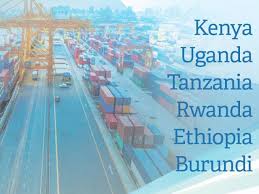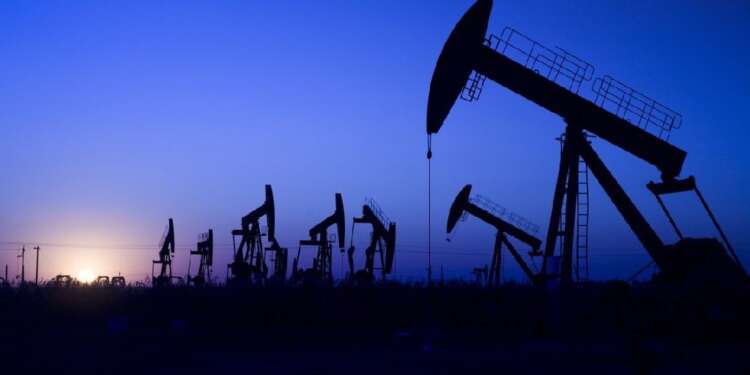- Abu Dhabi radiates optimism as over 300 startups join AIM Congress 2024
- TLcom Capital Raises $154 million in Funding to Boost Its African Growth
- Africa’s $824Bn debt, resource-backed opaque loans slowing growth — AfDB
- LB Investment brings $1.2 trillion portfolio display to AIM Congress spotlight
- AmCham Summit kicks off, setting course for robust future of US-East Africa trade ties
- Why the UN is raising the red flag on the UK-Rwanda asylum treaty
- Portugal’s Galp Energia projects 10 billion barrels in Namibia’s new oil find
- Wärtsilä Energy offers tips on how Africa can navigate energy transition and grid reliability
Browsing: World Bank
World Bank —Tanzania’s vibrant development partner has predicted a slow down of the Tanzanian real Gross Domestic Product (GDP) to 2.5 per cent in 2020 from 6.9 per cent in 2019.
According to the fourteenth edition of the—Tanzania Economic Update Addressing the Impact of COVID-19, the bank analysis, based on assumptions of strengthened government action on containing the coronavirus pandemic and mitigating the economic impact, as well as improving external conditions, demonstrate real GDP growth slowing to 2.5 per cent in 2020, with substantial downside risk.
The bank’s analysis went further and adjoined the 2018 Household Budget Survey, and found out that, an additional 500,000 Tanzanians could fall below the poverty line, particularly those in urban areas relying on self-employment and informal/micro-enterprises.
However, as the entire globe and the region navigate through the pandemic, Tanzania sustained its consequences adding “economic costs are already being felt in Tanzania and even …
The effects of Covid-19 have continued being felt in the East African region despite governments developing various interventions to counter them. Interventions have included the provision of healthcare remedies as well as stimulus plans to bail out communities who have been ravaged by the pandemic. The highlight of the inter-East African relations has been a diplomatic tiff between Kenya and Tanzania that had threatened the livelihoods of the region who depend on the two strongest economies.
The markets in the region have remained slow with the economies expected to get a hit for months to come. Various entities including the World Bank have revised their projections of the growth of the region’s economy. The triple effects of Covid-19, floods and locusts have made the economies of this region suffer greatly. Kenya has also received a negative rating by Moody based on her rising debt.
In this edition, we highlight how …
The Impact of COVID-19 on agriculture value chains especially transportation logistics is immense. Economies must adopt, industries and sectors must find their own solutions to the bottlenecks in the agri-food supply chain.
Now that it is no longer business as usual, what makes up for robust food supply chains when borders are shut down? Will air travel cut prizes and yet break even in cross border food supply routes? What technological advances must we embrace in food production to bridge the growing supply gap? How can digital systems help speed up logistics integration in the transportation sector?
These are the questions that must be answered to charter the way forward for Africa’s food security and maybe even the World’s.
https://theexchange.africa/industry-and-trade/agribusiness/how-africas-122-million-mobile-banking-accounts-can-fund-agriculture/
While the COVID-19 crisis has brought to our door steps the largest challenge for food security of modern times; with lock downs, quarantines and logistics disruptions not to mention the …
Even as share values for US futures on crude oil prices hit rock bottom, spotting a worrisome negative figure (-4.0 USD) there are still several functions that claim the crush of oil prices in the US and around the World will have no effect on stock shares in Tanzania, the numbers are giving a different story. Lets start with the optimistic side.
As US futures for oil price continue to free fall some are of the view that it will have no effect on Tanzania’s sole bourse, the Dar es Salaam Stock Exchange (DSE). Why? Well, simple, most African countries, Tanzania included, are oil importers so, the fall of oil prices will mean positive balance of payments.
In turn, favourable balance of payment means good exchange rates of the shilling for the dollar, again another plus for the shilling. Good exchange rates translates to higher value of the shilling and …
Members of Parliament in Tanzania are urging the government to consider giving tax breaks to businesses in a bid to help them stay afloat.
Alternatively, the government is encouraged, through the Central Bank, to scrap interest on loans so that borrowers do not fall into default.
At the moment, despite the global slowdown, businesses are still operational but they are operating way below their year revenue projections. Already, at the start of the second quarter, the country is facing potentially huge loan defaults by both large corporations as well as small and medium sized companies.
Big businesses are now turning to the government to intervene. While the Central Bank, the Bank of Tanzania (BoT) has already issued a stimulus package for commercial banks, the Tanzania Private Sector Foundation (TPSF) is working on an arrangement to save large borrowers from mega defaults that would in effect ripple throughout the economy.
Commercial …
The second 20 years Treasury Bond that was auctioned last week by the Central Bank of Tanzania has oversubscribed, again.
The Bank of Tanzania (BoT) was forced to close the trading session as the market gabbled up the high interest rate bond.
The bond had an attractive interest rate of 15.85 percent coupon rate was offered in the 20-year instrument held on Wednesday slightly down compared to 16.21 per cent of the session held in February this year.
The auction was meant to serve as a debt instrument that the government targeted to raise only 117bn/-, local media reported mid week. However, interest for the bond was more than anticipated with the government, through the BoT, racking in a whopping 276.86bn/- that is more than double the targeted amount.
As mentioned this is actually the second 20-year Treasury Bond to be auctioned this year and both had good response, both …
Oil prices have plummeted heralding a tough time ahead- at least in the foreseeable near future- for oil exporters in Africa.
The chaos started when Saudi Arabia and Russia disagreed over production cuts leading to the oil price war which has led to the huge oil price drops the last of which were witnessed the 1991 Gulf War.
This tiff came after Russia refused to cut production as requested by the Organisation of the Petroleum Exporting Countries (OPEC) due to the reduced oil demand occasioned by the Covid-19 coronavirus pandemic. With Saudi Arabia retaliating, the world is now experiencing the biggest drop in oil prices to around $30 per barrel.
Africa’s most affected sectors, hope for survival
While this is happening miles away from Africa, oil exporters on the continent have not been spared. Nigeria and Angola are particularly affected with their economies registering the negative effects of the slump …
Africa, the world’s second-fastest-growing region might drive a third of 440 it’s formal and informal workers in unemployment, as the region rolls in lockdowns that sweep away people’s means to earn their income, according to McKinsey.
As the virus threats keep on taking new shapes, Mckinsey Finding Africa’s Path report entails that report, between 9 million and 18 million of Africa’s 140 human capital informal sector could lose their jobs.
The report also noted that a further 30 million to 35 million could see a reduction in wages and working hours, as one hundred million of the 300 million informal jobs in Africa are at risk.
Already the virus has hurt other decent-paying and highly labour concentrated sectors in the region such as manufacturing, retail and wholesale, tourism, and construction, as jobs of more than half of the workforce could be lost, the report highlighted.
The virus which has already …
The price for crude oil is down 60 percent since the year started and it is only tumbling further, global oil news reports.
On the one hand, analysts blame the ongoing coronavirus pandemic and on the other the price war between Saudi Arabia and Russia is said to have contributed to the sharp drop.
Even the movers and shakers are feeling the pinch, oil in the US plummeted 34%, crude oil falling by 26%, and brent oil falling 24%. Associated Press reports that prices this week dropped to an 18 year all time low of under USD20 a barrel for the US.
Speculators say it is the best time to invest, pessimists would have you shy away from taking the risk.
The idea is a simple business law, buy when prices are low and sell when prices peak, so technically, the advice to buy into the oil business now is …
At a time when physical contact is discouraged due to spread of coronavirus, Tanzania’s little town of Kilimanjaro, has set up Automated Teller Machines (ATM) for the sale of milk. There is little human contact involved apart from the exchange of money making the machines a vital game changer in curbing spread of the virus.
The move has set a global precedence in the use of digital telecommunication for commercial purposes. What stands out is the fact that the technology has not been set up in the bustling urban town of Dar es Salaam but rather on the outskirts in the small town.
“This is what technology is for…it not only for the urban centers, it should be used to make life easier in rural areas as well, and the set up of automated milk dispensers in rural Kilimanjaro is a good example,” says milk producer Ivan Mangesi.
Ivan is …










